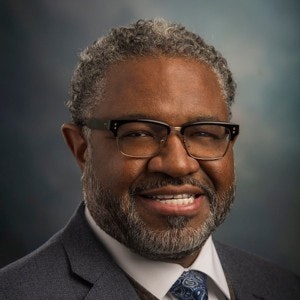The Academic Pipeline Exchange is an open access database charting diversity, equity, and inclusion (DEI) programs in businesses, organizations, and institutions of higher education across the nation.
While the full database is only in its initial stages, Drs. Curtis Byrd and Rihana Mason are already working to turn their idea into a nationwide standard.
 Dr. Curtis Byrd, co-author of the 2021 book Academic Pipeline Programs: Diversifying Pathways from the Bachelor’s to the Professoriate.
Dr. Curtis Byrd, co-author of the 2021 book Academic Pipeline Programs: Diversifying Pathways from the Bachelor’s to the Professoriate.
“We’re looking at creating a national clearinghouse of diversity, BIPOC [Black, Indigenous, People of Color] initiatives for minoritized students, faculty and staff at universities,” said Byrd. “What we’re finding is that these programs are absolutely needed in the climate we’re in right now. We’ve not seen the growth that we want. There’s diversity happening among students, where the pipeline is slowing down is at the faculty level.”
Byrd, former special advisor to the provost at Georgia State University (GSU), said that institutions are struggling to diversify their faculty. Despite the increasing number of PhDs, those graduates are not continuing into the professoriate.
“So, we’re trying to figure out, how do we shift that, using these pipeline initiatives to move us in that direction, and helping institutions understand what they have, as they figure out ways to develop pipelines into doctoral programs and faculty positions,” said Byrd., who recently appeared on a panel sponsored by Diverse at the annual meeting of the Association of American Colleges and Universities (AAC&U) in San Francisco.
Pipeline and diversity programs in the database are assessed through what Byrd and Mason call the THRIVE Index: Type, History, Research, Inclusion, Identity, Voice and Expectation. These themes capture what kind of program is being indexed and its position at its institution, the historical context of the program, research components and how those are allocated to students, faculty, or staff, how programs strengthen and support identity and create inclusive spaces, how the programs capture and share participants’ voices, and what the overall goal of the program or initiative’s outcomes should be.



















